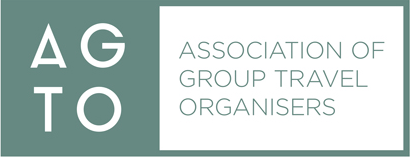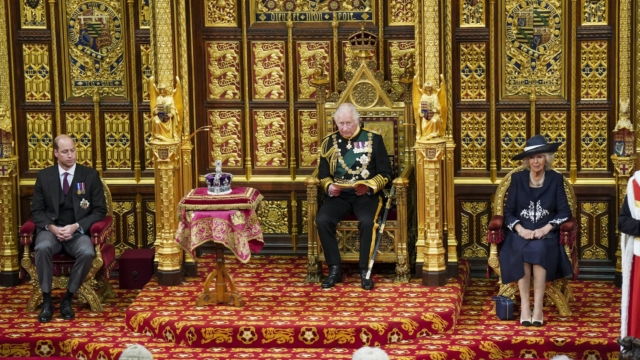COVID-19 Update 6th April 2021
- Confirmation of Step 2
As you will all be aware from yesterday’s announcement, Step 2 starting on 12th April has been confirmed with no changes to the relaxation of restrictions that were announced in the Roadmap. One good rule of thumb is that only individuals or a single household group can visit an indoor setting, while groups complying with the Rule of Six/Two Households are allowed to meet in outdoor settings.
https://www.gov.uk/government/news/further-easing-of-covid-restrictions-confirmed-for-12-april
- Recovery Loan Scheme
The Government’s new Recovery Loan Scheme opens today. This scheme allows businesses to access loans of £25,000 to £10 million and as well as invoice and asset finance from £1,000. The government will provide an 80% guarantee for all loans and interest rates have been capped at 14.99% (although the Government expects the rates will be much lower for the vast majority of cases.
https://www.gov.uk/government/news/recovery-loan-scheme-launches-today
New Red List Countries
Philippines, Pakistan, Kenya, and Bangladesh have been added to the Red List countries and, as such a travel ban will come into effect for visitors from these countries from 4am on Friday 9 April
- Roadmap Reviews
The Government produced an update on the work of the four review groups that were established when the Roadmap was announced on 22nd February. These interim reports contain little in the way of outcomes or proposals – the main points are:
Certification
-
- The Government believes that:
- businesses are able to ask customers for proof of COVID-status in order to access their premises as long as they are compliant with equalities legislation
- it is right for it to provide a means of easily demonstrating COVID-status
- COVID-status certification could be acquired through vaccinations, testing or natural immunity
- there are some settings (such as essential public services, public transport and essential shops) where COVID-status certification should never be required
- it is possible that COVID-status certification could also play a role in reducing social distancing requirements
- The Government believes that:
The NHS is working on providing individuals with the means to demonstrate their COVID status through a digital and non-digital route
Global Travel Taskforce
-
- Given the state of the pandemic abroad, and the progress of vaccination programmes in other countries, the Government is not yet in a position to confirm that non-essential international travel can resume from 17th May
- When non-essential international travel does return it will do so with a risk-based “traffic light” system.
- Green – no isolation needed
- Amber – home quarantine
- Red – no entry except for returning citizens and hotel quarantining
- It is too early to say which countries will be on the green list when non-essential international travel resumes.
- The Government advises people not to book summer holidays abroad until the picture is clearer
- When non-essential international travel does resume, the NHS solution to demonstrating Covid status (above) will facilitate international travel where certification is required, and the Government will look to establish arrangements with other countries and international organisations to establish mutual recognition of certificates
Events
-
- Early pilots will focus on demonstrating COVID-status through testing alone, while later pilots will seek to incorporate data on vaccination and acquired immunity.
- The Events Research Programme will examine the extent to which COVID-status certification would help towards the return of crowds to mass events and closed settings
Social Distancing
-
- The extent of any relaxation in social distancing measures is linked to the questions being explored by the COVID-Status Certification Review – including whether COVID-status certification can enable changes to social distancing.
- Code of Practice for Commercial Properties
The Government has updated the Code of Practice for Commercial Properties, which sets out how commercial landlords and tenant should work together to protect viable businesses. In short, the code of practices states that, where businesses are able to pay rent, they should do so and where this is not possible, landlords should provide support to businesses if they are able to do so. It encourages tenants and landlords to be transparent in their discussions and to act reasonably and responsibly whilst recognising the impact that coronavirus has had on businesses’ finances
As part of the update to the Code of Practice, a new annex has been added to help landlords and tenants resolve the issue of rent arrears and service charges accrued due to Covid-19 and the imposed lockdowns. The annex is a form designed as a questionnaire that allows tenants to bring together the information relevant to individual situations and generate a formal proposal for repayment that the landlord can respond to by either accepting or producing a counter-offer.
https://www.gov.uk/government/publications/code-of-practice-for-the-commercial-property-sector
Associated with this, the Government has also launched a call for evidence on:
-
- the moratorium on commercial lease evictions established by section 82 of the Coronavirus Act 2020
- the restrictions on the use of Commercial Rent Arrears Recovery (CRAR) established by the Taking Control of Goods (Amendment)(Coronavirus) Regulations 2021
The government’s objective is to gather more evidence to understand how landlords and tenants are responding to the build-up of rent arrears that has occurred as a result of businesses being unable to trade normally during the pandemic. This will inform a better understanding of the risk to economic recovery posed by remaining rent debts, and to understand how landlords and tenants are adjusting existing lease terms to reflect the period of recovery that many tenant businesses will need once the trading restrictions are lifted. The evidence gathered will inform government policy regarding the exit from the existing measures and any need for additional measures to preserve viable businesses and the jobs that they provide.
Responses to the call for evidence are due by 4th May 2021
- Updated Test and Trace Guidance
The guidance for test and trace requirements has been updated for businesses that are allowed to open. Points of note in the guidance are:
-
- Staff at a venue should check customers phone screens to ensure they have successfully checked in
- You do not need to ask for contact details for people whose visit is for the sole purpose of making a delivery or collection by supplies or contractors, including food or physical goods.
- You do not need to ask for contact details for those under the age of 16
- If someone does not have the mental capacity to provide their contact details, hospitality venues should not refuse entry
- Businesses will not be in breach of the requirements if they have reason to believe someone can’t provide the details for disability reasons and don’t ask for them as a result.
- Hospitality venues should not deny entry to homeless people who are unable to provide a contact number or email address.
- Travel Within the CTA
The Government has updated the guidance for Step 1b by including a section on travel within the Common Travel Area. This includes
Travelling to or from Northern Ireland
Currently in Northern Ireland it is against the law to leave home without a reasonable excuse. Those arriving into Northern Ireland from another part of the Common Travel Area are asked to self-isolate for 10 days upon arrival.
Travelling to or from Scotland
Non-essential travel between Scotland and the rest of the UK, and the wider Common Travel Area, remains restricted. This means it is illegal to enter or leave Scotland unless you have a reasonable excuse. Travelling for a holiday is not a reasonable excuse.
Travelling to or from Wales
Non-essential travel between Wales and the rest of the UK, and the wider Common Travel Area, remains restricted. This means it is illegal to enter or leave Wales unless you have a reasonable excuse. Travelling for a holiday is not a reasonable excuse.
- APPG Inquiry Extension
The Hospitality and Tourism APPG is currently holding an inquiry – After the Vaccine – Saving the UK’s Town and City Centres Post COVID-19Before the pandemic, town and city centres accounted for around 60% of the country’s economic output and more than half of the population. These areas will be vital in the economic recovery of the UK, especially in relation to domestic and inbound tourism. As such, this inquiry looks to tackle a wide range of topics impacting the UK’s cities and towns, before concluding with a report and recommendations outlining the support that businesses in towns and cities need.
The deadline for submitting evidence for this inquiry has been extended until the end of next week so members and businesses that depend on a vibrant economically active town centres are encouraged to put in a submission on the following link
https://www.ukhospitality.org.uk/page/APPG
- Food for Thought
I have attached a copy of the Food for Thought Initiative which is looking at the importance of sustainability and local food systems in catering and hospitality education. This provides businesses with the opportunity to influence the curriculum and ensure that students leave education armed with the skills and knowledge that businesses need as the results will be used to establish the content requirements for an educational programme for catering and hospitality students, and to identify optimal learning methods that attract and motivate young learners.
https://www.surveymonkey.co.uk/r/FFT2021


